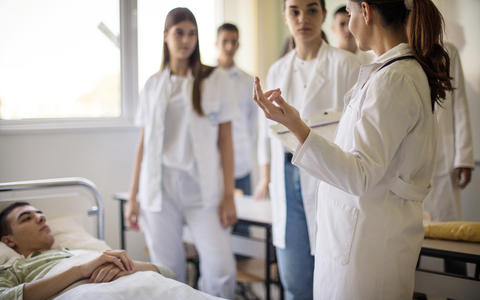NVAO has confidence in the quality of the Bachelor's degree programmes in Nursing. This is evident from the overview report published in Dutch by NVAO in February 2023 on the assessments of these programmes. However, this was not the case in 2015, when NVAO issued negative accreditation decisions for all these nursing programmes. What followed was a thorough reform of the curriculum and an extension of the curriculum from 180 to 240 ECTS credits. In this English version of its overview report NVAO sketches a general picture of the substantive findings of the assessment panels. The report concludes with NVAO's insights and policy recommendations.
In 2015, all fourteen bachelor's degree programmes in nursing received a negative accreditation decision. NVAO took these decisions because the programmes did not comply with Directive 2005/36/EC of the European Parliament and of the Council of 7 September 2005 on the recognition of professional qualifications. This European Union directive determines, among other things, the minimum training requirements for a graduate to be recognized as a general nurse anywhere in Europe. That is why nursing programmes should be widely applicable and should include at least 2,300 hours of clinical education (internship). As a result of NVAO’s negative accreditation decisions, the government decided to extend the Bachelor's programmes in Nursing from 180 credits (nominal three academic years) to 240 credits (nominal four academic years). This would give these programmes the necessary generic character and 2,300 hours of clinical education. In September 2016, the new Bachelor's programmes in Nursing started. The external assessments of these programmes took place in the academic year 2021-2022. By the end of the year 2022 all fourteen bachelor’s degree programmes in nursing received a positive accreditation decision.
